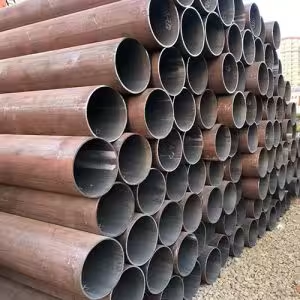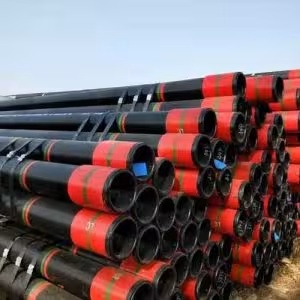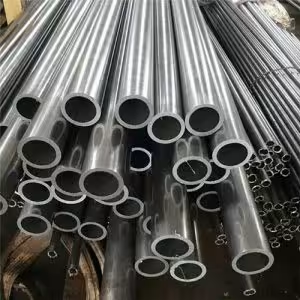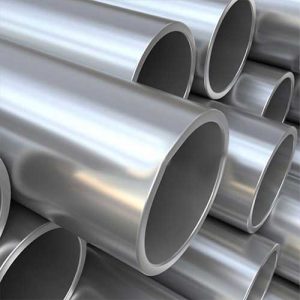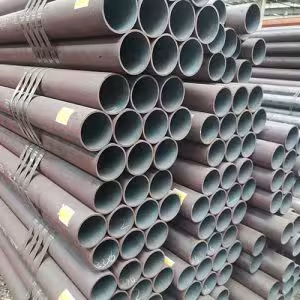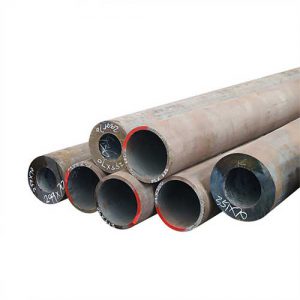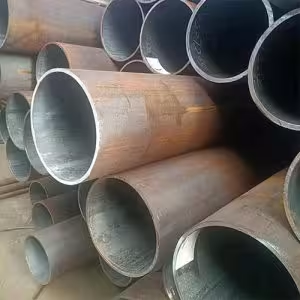Table of Contents
Introduction
When selecting materials for industrial applications, construction projects, or energy pipelines, choosing the right seamless alloy pipe is crucial for ensuring performance, durability, and efficiency. Seamless alloy pipes are preferred for a wide range of uses due to their ability to withstand high pressure, resist corrosion, and maintain strength in extreme environments. This comprehensive guide will explore the characteristics of seamless alloy pipes, discuss how to select the right one for your project, and highlight their advantages across different industries.
Understanding the properties of seamless alloy pipes will enable you to make informed decisions when specifying materials for your project, whether you’re dealing with high-temperature environments or seeking materials that offer superior structural integrity.
What Is a Seamless Alloy Pipe?
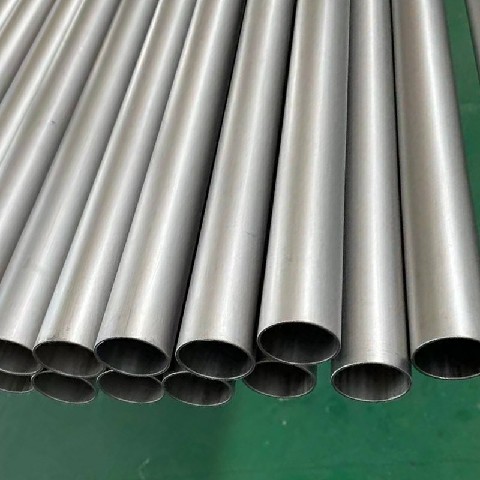
Seamless alloy pipes are cylindrical tubes made from alloyed metals and manufactured without seams or welds. This lack of joints improves the structural integrity of the pipe, making it stronger and more resistant to pressure compared to welded pipes. Alloy pipes are composed of metals like chromium, nickel, molybdenum, and other elements to enhance the pipe’s mechanical properties.
Key Features of Seamless Alloy Pipes
- No Welding Seams: Seamless pipes are manufactured without welded joints, making them ideal for high-pressure environments.
- Superior Strength: Their design allows for better pressure handling, making them suitable for high-stress applications.
- Corrosion Resistance: Alloy pipes are designed to resist corrosion, especially when exposed to harsh chemicals or extreme temperatures.
- Uniformity: The absence of seams ensures consistent performance across the length of the pipe, reducing the chances of weak points or failure under pressure.
Why Choose Seamless Alloy Pipes for Your Project?
Selecting the right seamless alloy pipe depends on several factors, including the environment where the pipe will be used, the specific industry needs, and the project’s budget. Understanding the advantages that seamless alloy pipes bring to the table will allow you to choose the appropriate material for your project’s requirements.
Advantages of Seamless Alloy Pipes
- Pressure Resistance: Seamless alloy pipes are specifically designed to handle high-pressure environments, such as in oil and gas pipelines or high-performance boilers.
- Durability: Due to their seamless structure, these pipes are less prone to cracking or breaking under stress.
- Heat Tolerance: Alloy pipes are known for their ability to perform well under high temperatures, making them suitable for energy industries and heat exchangers.
- Long-Term Performance: The robust materials used in seamless alloy pipes ensure long-term usage, reducing the need for frequent replacements or maintenance.
- Versatility: Seamless alloy pipes are available in various sizes and material compositions, making them ideal for diverse applications.
Factors to Consider When Choosing Seamless Alloy Pipes
Project Requirements
The first step in choosing the right seamless alloy pipe is to understand the specific needs of your project. This includes evaluating factors such as pressure levels, temperature conditions, and the type of fluids or gases being transported. For example, industries dealing with corrosive materials or high temperatures will require pipes with specific corrosion-resistant alloys.
Material Composition
Seamless alloy pipes are made from various alloy compositions, each designed to provide different benefits. Depending on your project’s requirements, you may need pipes made from alloys such as:
- Chrome Moly Alloy (Cr-Mo): Commonly used in power plants and refineries for their strength and heat resistance.
- Nickel Alloys: Suitable for applications requiring corrosion resistance, especially in chemical processing plants.
- Stainless Steel Alloys: Used in food processing, pharmaceutical industries, and other industries where hygiene and corrosion resistance are critical.
Understanding the material composition of the alloy pipe is essential for ensuring that it can withstand the environmental challenges specific to your project.
Size and Dimensions
Selecting the right size of seamless alloy pipe is critical for ensuring proper functionality. Pipes come in different diameters and thicknesses, and the right choice depends on your project’s requirements. Here’s a table outlining typical size ranges for seamless alloy pipes:
| Size Specification | Description |
|---|---|
| Diameter (Outer) | Ranges from 1/8 inch to over 30 inches |
| Wall Thickness | Varies from Schedule 10 to Schedule XXS |
| Length | Customizable lengths, up to 20 meters |
| Weight | Varies depending on size and material type |
The size and wall thickness will affect the pipe’s ability to handle pressure and flow rates. For high-pressure applications, a thicker-walled pipe is generally preferred.
Corrosion Resistance
Corrosion resistance is a major factor, especially when the pipes will be used in environments exposed to chemicals, moisture, or extreme temperatures. Alloy pipes are often selected for their corrosion resistance, which can vary depending on the specific alloy used. For instance, pipes made from nickel alloys provide superior corrosion resistance compared to carbon steel pipes, making them ideal for chemical processing plants and marine environments.
Heat Resistance
For industries that involve high temperatures, such as power generation or petrochemical refining, seamless alloy pipes must be able to maintain structural integrity under extreme heat. Alloy pipes made from materials like chromium-molybdenum (Cr-Mo) can withstand high-temperature environments and prevent creep, a form of deformation that occurs in materials under constant stress at high temperatures.
Budget and Availability
While seamless alloy pipes offer superior performance in demanding conditions, they can be more expensive than other options like welded pipes. It’s essential to balance the long-term benefits of durability and reduced maintenance costs with your project’s budget constraints. Additionally, the availability of specific alloys and sizes can impact lead times, so it’s important to work with suppliers who can meet your project’s timeline.
Applications of Seamless Alloy Pipes Across Industries
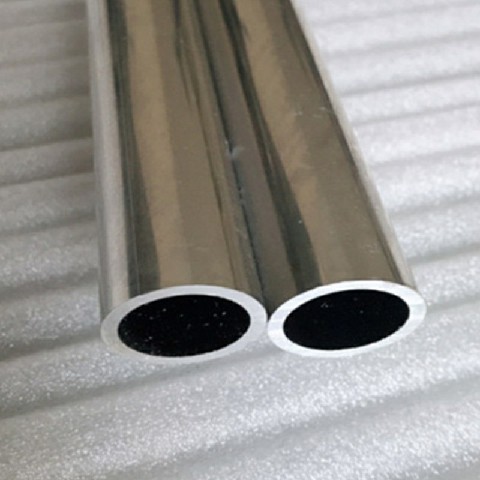
Seamless alloy pipes are highly valued for their strength, durability, and resistance to corrosion and high temperatures. Below are some of the key industries that rely on seamless alloy pipes:
Oil and Gas Industry
Seamless alloy pipes are extensively used in the oil and gas sector, particularly in drilling operations, transportation pipelines, and refineries. The pipes are ideal for these environments due to their high-pressure tolerance and resistance to corrosive substances.
Power Generation
In power plants, seamless alloy pipes are used in boilers, heat exchangers, and turbines where high heat and pressure are prevalent. Their ability to perform under extreme conditions makes them a preferred choice for these applications.
Chemical Processing
Seamless alloy pipes are commonly used in chemical processing plants, where corrosion resistance is crucial. The pipes must withstand exposure to a variety of chemicals and maintain their integrity over time.
Automotive and Aerospace
In the automotive and aerospace industries, seamless alloy pipes are used for exhaust systems, hydraulic systems, and in applications requiring high strength-to-weight ratios. Their lightweight, yet durable construction makes them ideal for these industries.
Construction and Infrastructure
Seamless alloy pipes are frequently used in construction for high-stress applications such as bridges, tunnels, and large buildings. Their superior strength and resistance to environmental factors make them a reliable choice for infrastructure projects.
Conclusion
Choosing the right seamless alloy pipe for your project is a critical decision that can impact the overall success and longevity of your operation. By considering factors such as material composition, size, corrosion and heat resistance, and cost, you can make an informed decision that meets your project’s specific needs. Seamless alloy pipes offer unmatched durability, strength, and versatility, making them an excellent investment for industries ranging from oil and gas to construction.
When selecting seamless alloy pipes, it’s essential to work with reputable suppliers who can provide quality materials that meet your project’s specifications and deliver within your timeline. With the right choice of seamless alloy pipes, you can ensure efficiency, safety, and long-term performance in even the most challenging environments.
FAQ
What is the difference between seamless and welded alloy pipes?
Seamless alloy tubes are made without any welds or seams, giving them superior strength and pressure tolerance. Welded pipes, on the other hand, have a welded seam that can be a point of weakness under high pressure. Seamless pipes are typically used in more demanding applications.
How do I choose the right alloy for my seamless pipe?
The choice of alloy depends on the specific requirements of your project. For high heat and pressure, chromium-molybdenum alloys (Cr-Mo) are often preferred. For applications requiring corrosion resistance, nickel-based alloys or stainless steel alloys are recommended.
Are seamless alloy tubes more expensive than welded pipes?
Yes, seamless alloy tubes tend to be more expensive than welded pipes due to their more complex manufacturing process and superior performance characteristics. However, the long-term benefits in durability, reduced maintenance, and higher safety often justify the higher initial cost.
Can seamless alloy tubes be customized?
Yes, seamless alloy tubes can be customized in terms of size, wall thickness, and length to suit specific project requirements. Customizations may also include specialized coatings for additional corrosion resistance.
What industries benefit the most from seamless alloy tubes?
Industries such as oil and gas, power generation, chemical processing, automotive, aerospace, and construction benefit greatly from the use of seamless alloy tubes due to their durability, strength, and resistance to harsh conditions.

